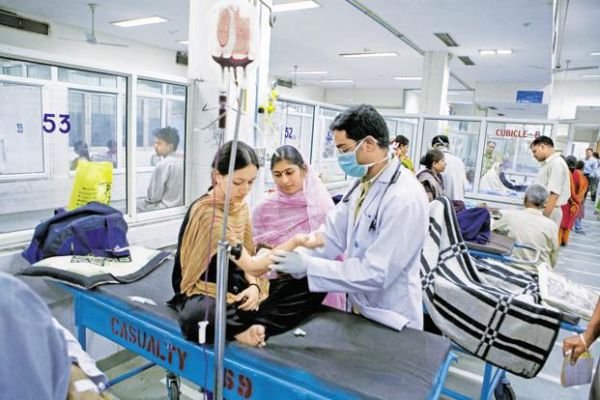As India eagerly awaits the interim budget for 2024, industry experts in the fields of research and development (R&D), healthcare, and pharmaceuticals are voicing their expectations for increased allocations in these crucial sectors. Finance Minister Nirmala Sitharaman is set to present the budget on February 1, and stakeholders anticipate a strong focus on fostering innovation and addressing the dynamic healthcare needs of the country.
Vibcare Pharma CEO Siddharth Singhal emphasized the significance of government support for the pharmaceutical and healthcare sector. He highlighted the need for increased funding in areas critical to the industry, such as regulatory reforms and healthcare funding. Singhal stated, “The budget’s emphasis on research and development offers us an exceptional chance to innovate.” He expressed hope for the government to align its policies with the mission of introducing better and more cost-effective medicines to cater to India’s evolving healthcare landscape.
Singhal also emphasized the transformative opportunity presented by the budget, envisioning growth in innovation, sustainability, and global competitiveness for the pharmaceutical industry. The industry’s current valuation stands at approximately $50 billion, with ambitious growth targets of $120 billion to $130 billion by 2030 and a staggering $450 billion by 2047, according to government estimates.
Healthium Medtech CEO and MD Anish Bafna underscored India’s potential to become a global hub for the medtech sector. He called for a collaborative action plan involving public-private partnerships to drive expansion, growth, investment opportunities, and technological innovation in the healthcare sector during the fiscal year 2024-25. Bafna emphasized the importance of conducive policies to support local manufacturing and facilitate faster accessibility of new medical devices for patients and healthcare providers.
Dr. Joy Shah, founder of Beagle Lasers, highlighted the expected focus on strengthening the availability of quality healthcare, especially in rural areas. He anticipated changes in the GST tariff and services covered under healthcare, with a potential strengthening of import regulations to reduce the influx of imported medical equipment. Dr. Shah emphasized the importance of creating a conducive environment for local manufacturers to thrive, aligning with the “Make in India” initiative and contributing to enhanced employment opportunities and healthcare service quality.
VarcoLeg Care CEO Veeky Ganguly expressed anticipation for policy measures that simplify the adoption of health technologies. Streamlined regulatory processes and incentives for healthcare providers to embrace digital solutions were cited as potential measures that would benefit the industry and contribute to a more patient-centric healthcare approach.
Vikram Thaploo, CEO- Telehealth, Apollo Hospitals Enterprises Limited, emphasized the need for increased funding to boost domestic manufacturing of medical equipment. Thaploo looked forward to potential changes in GST tariffs and services covered under healthcare, expecting measures to strengthen import regulations and create an environment conducive to the growth of indigenous manufacturers. He urged the government to prioritize investments in public health infrastructure, primary healthcare facilities, essential medicines, and the expansion of Production-Linked Incentive (PLI) schemes to cover advanced digital technologies like Generative AI.
As the Union Budget 2024-25 approaches, the healthcare industry’s collective optimism is centered around the hope that the government’s fiscal measures will pave the way for enhanced innovation, accessibility, and growth in India’s crucial healthcare sectors. The budget, with general elections on the horizon, is expected to strike a delicate balance between fiscal prudence and populist measures.














